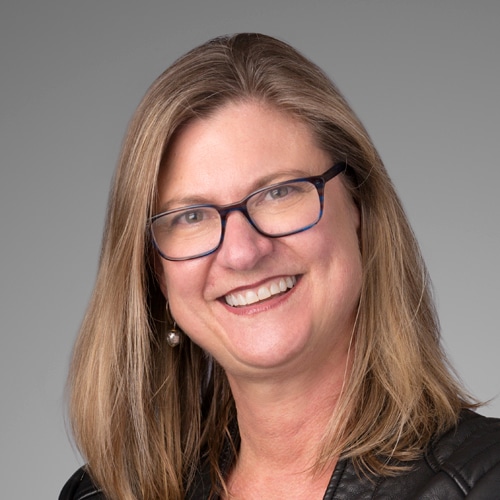For most professional services providers, 2020 was a year of refocusing on what clients and employees need to survive. They are our lifeblood and human capital. The COVID-19 pandemic has demanded empathy, flexibility, innovation and, in many cases, increased transparency in the delivery of legal services.
The future of legal services delivery demands the same. Last month, consultant Debbie Epstein Henry hosted a panel on the “Future of Legal Services, Delivery & Talent,” with Jami McKeon, Chair of Morgan Lewis as co-host. Panelists included Grace Speights, a partner with Morgan Lewis and global leader of the firm’s Labor and Employment Practice; Matthew Fawcett, Senior Vice President, General Counsel and Secretary of NetApp; and David Lat, founding editor of Above the Law and managing director at Lateral Link.
Those themes wove through a variety of topics during the panel. Here are some highlights.
Help Your Client Become a Business Enabler
For most general counsel, the biggest challenge is discovering how to migrate from being a cost center and risk manager to a business enabler. That may mean buying fewer traditional legal services and spending more with alternative legal services providers. Helping a client find the right solution or ALSP is one way to forge a lasting relationship for the legal services they do need.
“In 2010, 100% of our external legal spend went to law firms — millions and millions and millions of dollars per year. Today, less than 50% goes to law firms. The remainder go to ALSPs and technology platforms,” Fawcett said. So it makes sense that firms would want to partner with, or at least understand, their clients’ ALSPs.
“You have to be able to work in teams,” McKeon said, and that includes firms collaborating with ALSPs.
If firms refuse, it’s a nonstarter, said Fawcett.
McKeon and Epstein Henry went further. “The reality is that we are not the right solution for every client problem,” McKeon said. “Firms need to stop trying to be all things to all clients. That means making some judgment calls.” It also means recognizing that as in-house counsel become ever more sophisticated, “the biggest competition to law firms are the in-house legal departments themselves,” Epstein Henry said. Treat them with respect.
A+ Answers vs. C+ Answers
This is admittedly tough for many law firms. They want to give their clients the best answer for the challenges they face, and fear malpractice if they don’t. But for many companies, the “best answer” is the fast answer, not necessarily the “right answer.” And that gets directly to costs, and gives rise to difficult conversations. “But that’s the conversation that I need to have as a manager of risk and cost,” said NetApp’s Fawcett, “which gives me the right to a seat at the table as a business enabler.”
“There are lots of things that are ‘legal’ that do not need lawyers. I would say maybe 80% of the work we do is legal work, but there’s no reason you need a qualified J.D. doing that work. We keep 40 people busy full time at an ALSP,” Fawcett said.
NetApp may be an outlier here, but firms need to have answers to these questions going forward. For example, Speights said her group at Morgan Lewis offers clients facing employment litigation three options. “Here’s how we can craft your defense. There is a Rolls Royce way of doing it, a Lexus way of doing it, and the Volkswagen way of doing it.” That may mean taking 10 depositions rather than 20. Offering the client options of the way they want their matters handled is key to a lasting, versus a one-off, relationship.
Please Meet My CIO
The attorney-client relationship needs to be supplemented with the technologist-client relationship. “Many large law firms have CIOs, chief information officers. We like to collaborate with them. They yield richer engagements and better relationships,” Fawcett said. Those professionals will understand, perhaps better than your practicing attorneys, what kind of data clients are interested in tracking, and how best to deliver data-driven solutions. Especially for in-house departments with legal operations specialists, this is key.
If you are a small firm without a CIO, no problem. Just ask for a meeting with the client about what they might want from the firm’s CIO.
COVID Proves Virtual Firms Can Work
David Lat offered that the pandemic has proved that firms with lower overhead and less leverage (read: fewer associates) can thrive in this market. “It won’t work for large product liability litigation or IPOs, but it does work well for trusted advisors who tackle a narrow range of issues,” Lat said. In a virtual model, these lawyers are able to have lower hourly rates and retain a larger portion of the revenue they generate.
Epstein Henry noted that it can be harder for inexperienced attorneys in virtual firms to find everything they need for their professional development and that it’s harder to create culture online. “We need to wrestle with that,” she said.
Treating Employees Right Means They Will Treat Your Client Right
A recent McKinsey study found that 40% of working mothers were considering leaving the workforce. “But that can be reversed with empathy, compassion, understanding and flexibility. We are seeing this emerge in this pandemic. When we engage more with our talent, our talent engages more with the clients. That is the key to success for law firms,” said McKeon, who is Morgan Lewis’ first female chair.
“We need to build it into the fabric of everything that we do. You have a much more virtuous circle with those relationships.”
Bring Clients Together So They Can Learn From Each Other
Increasingly, when clients have questions, they turn to peers — fellow in-house counsel — not their attorneys. But that doesn’t mean law firms can’t be the conveners of those mind melds, hosting gatherings where clients can learn from each other. More roundtables should be formatted where the clients do the talking and the attorneys do the listening, not the other way around.
Flat Fees Allow Firms to Staff Matters More Creatively
Speights said that some of Morgan Lewis’ flat-fee work has allowed the firm to staff matters with diverse lawyers, regardless of their rate, and provide a forum for associates who need experience working within a flat-fee structure along with a client-facing experience. “It allows you to invest in talent that you might not otherwise have the ability to invest in,” she said.
Diversity, Equity and Inclusion Can’t Be an Initiative That Sits on the Shelf
Speights was the only Black woman lawyer at the firm when she joined Morgan Lewis almost 40 years ago. She stressed that her clients are building diversity and inclusion data into their performance, management and compensation metrics.
“Especially given this past year, with #BlackLivesMatter, we need to get beyond the initiative, but to be deliberate and intentional. That starts with understanding the experience of Black lawyers at your firm. Things are not on equal footing. We need to make deliberate change.
“The future of law means making sure that all of our lawyers have the same experiences, regardless of their background. Anyone who has talent, drive and is willing to work hard can be a success at a law firm, become a partner at a law firm, and become senior partners at law firms.”
This requires white male senior partners to mentor and sponsor associates as they rise through the firm, she said. This requires transparency, with clients and internal stakeholders alike, and accountability mechanisms.
It also requires diversity metrics in peer reviews. “Which partners are really contributing to our efforts to become a more diverse firm.?”
Work the Way Your Client Wants to Work
“We achieved the war on paper. Now we are in the war on email.”
Ten years ago, when Fawcett, the new NetApp GC, learned his new office would need stronger steel support beams than the rest of the campus, simply to deal with the amount of paper his office produced and received, he took the office digital. And it wasn’t easy. “It took a lot of fighting, not just to migrate outside providers, but inside my own team … Just getting some people to accept digital signatures was maddening.”
Now, in an effort to reduce email and increase collaboration, in-house groups like Fawcett’s are turning to Slack or Microsoft Teams. “Email is an inefficient and ineffective (way) to get things done quickly.” Some firms raise concerns about data security, cybersecurity and privacy, but these can be overcome, Fawcett believes.
The bottom line: Firms need to be flexible in how they communicate with clients. “This is going to save time and bandwidth and mental health —and is just a better way to work. You will create stickiness, and more effectiveness,” Fawcett said.
There Is No Neat Bottom Line on the Future of Legal Services
There is no neat bottom line to this panel or this post. Here are my takeaways for key client conversations in the coming year:
- How are you?
- What do you need?
- How can I help?
- Aside from what I can offer you professionally, what can I do?

















